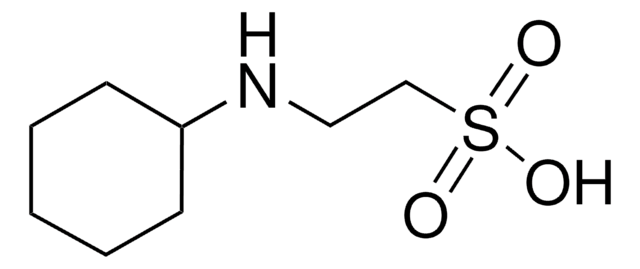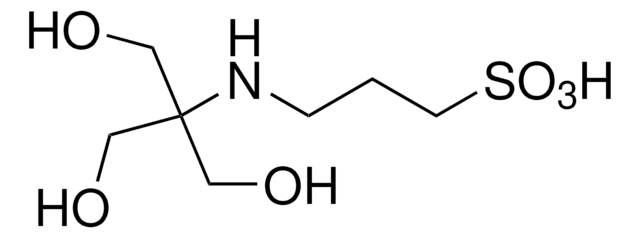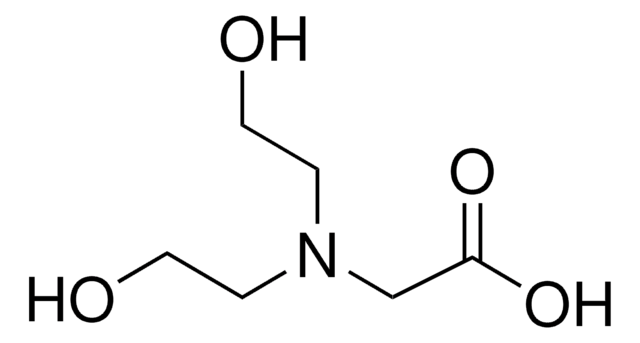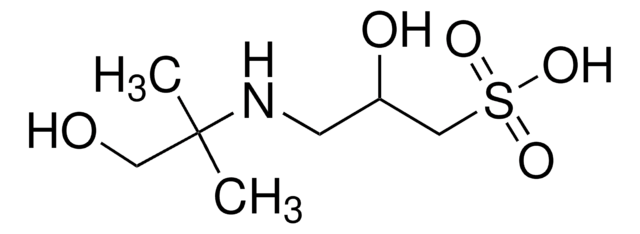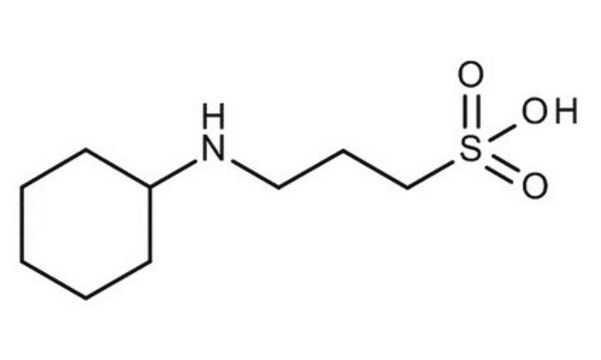C2278
CAPSO
≥99% anhydrous basis (titration)
Sinónimos:
3-(Cyclohexylamino)-2-hydroxy-1-propanesulfonic acid, CAPSO Free Acid
About This Item
Productos recomendados
Nivel de calidad
Análisis
≥99% anhydrous basis (titration)
formulario
crystalline powder
pH
2.5-4.0
intervalo de pH útil
8.9-10.3
pKa (25 °C)
9.6
solubilidad
water: 0.111 g/mL, clear, colorless
aplicaciones
diagnostic assay manufacturing
cadena SMILES
OC(CNC1CCCCC1)CS(O)(=O)=O
InChI
1S/C9H19NO4S/c11-9(7-15(12,13)14)6-10-8-4-2-1-3-5-8/h8-11H,1-7H2,(H,12,13,14)
Clave InChI
INEWUCPYEUEQTN-UHFFFAOYSA-N
¿Está buscando productos similares? Visita Guía de comparación de productos
Categorías relacionadas
Descripción general
Aplicación
- To maintain pH 9 during water leach test for the analysis of high-carbon coal fly ash-soil mixtures.
- Chemiluminescent in situ hybridization using soybean peroxidase-labeled peptide nucleic acid (PNA) probes. I
- Preparation of planar bilayer lipid membranes.
Código de clase de almacenamiento
11 - Combustible Solids
Clase de riesgo para el agua (WGK)
WGK 3
Punto de inflamabilidad (°F)
Not applicable
Punto de inflamabilidad (°C)
Not applicable
Equipo de protección personal
Eyeshields, Gloves, type N95 (US)
Certificados de análisis (COA)
Busque Certificados de análisis (COA) introduciendo el número de lote del producto. Los números de lote se encuentran en la etiqueta del producto después de las palabras «Lot» o «Batch»
¿Ya tiene este producto?
Encuentre la documentación para los productos que ha comprado recientemente en la Biblioteca de documentos.
Los clientes también vieron
Nuestro equipo de científicos tiene experiencia en todas las áreas de investigación: Ciencias de la vida, Ciencia de los materiales, Síntesis química, Cromatografía, Analítica y muchas otras.
Póngase en contacto con el Servicio técnico